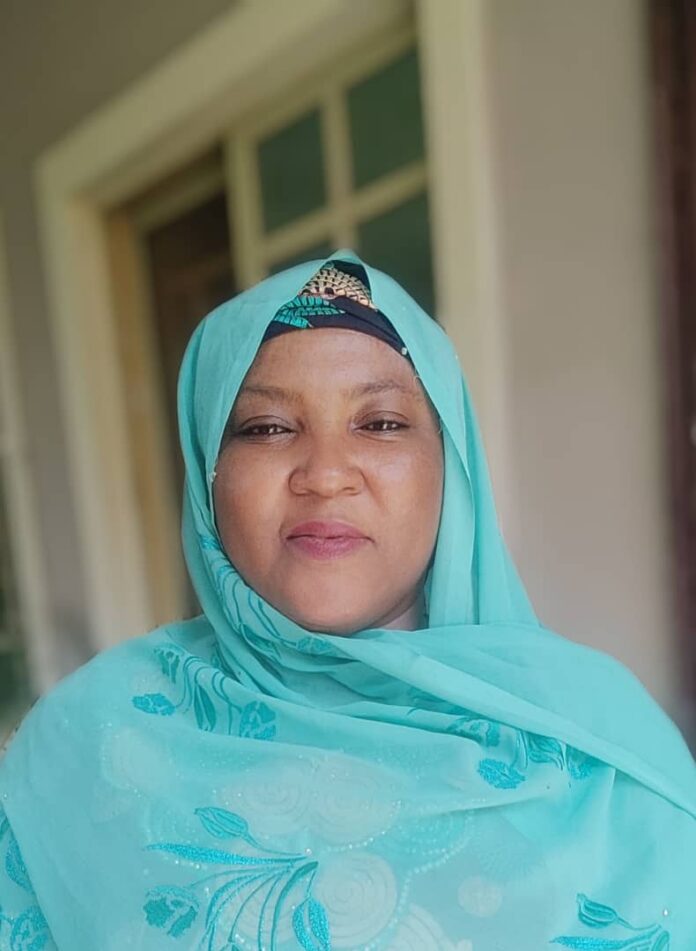Combating hate speech for the promotion of societal stability and peace-building, by Dr Hauwa Mohammed Sani
18th June 2023 International Day for Countering Hate Speech.
Introduction
Hate speech is a contemporary existential threat bedevilling nearly all countries. It is on the rise worldwide and can incite violence, undermine social cohesion and tolerance, and cause psychological, emotional, and physical harm to those affected. As responsible community members, we must unite and combat hate speech. We must take a firm stance and reject any form of hate speech unequivocally.
Social media platforms have become breeding grounds for hate speeches, causing increased insecurity and division among nations once united by culture, religion, and other social bonds. Such abusive, threatening, and prejudiced speech targets specific individuals or groups based on race or religion and communicates animosity or disdain toward them. It is unacceptable to discriminate against any individual or group based on their race, colour, national origin, sex, disability, or religion.
The devastating effect of hatred is sadly nothing new. However, the new communication technologies amplify their scale and impact today, so much so that hate speech has become one of the most frequent methods for spreading divisive rhetoric and ideologies globally. If left unchecked, hate speech can even harm peace and development, as it lays the ground for conflicts, tensions, and wide-scale human rights violations.
Hate Speech and its Impacts:
Extensive research has been conducted on the issue of hate speech and its harmful effects on various heterogenous and polarised African nations. Experts have confirmed that hate speech can cause severe damage to nation-building by exacerbating social divides, intensifying mistrust, and undermining national unity. Additionally, it is crucial to note that hate speech can lead to adverse economic consequences, which must not be ignored.
Others think that hate speeches pose threats to national unity. That hate speech could lead to sectional and not national interests and take a severe negative toll on Africa and Africans.
On the consequences of hate speech, one of the perils is its effect on a victim’s mental health. Victims of hate speech often become depressed, agonised, and sometimes suicidal, losing their confidence and self-esteem through exchanging fallacies and illusions. Hate speech reinforces stereotypes that are difficult to overcome.
Although many people understood what hate speech was, they did not understand its legal consequence; Laws dealing with hate speech remain questionable in Nigeria because dealing with perpetrators depends on one’s personality.
In Ethiopia, Nigeria, and South Africa, violent protests, armed uprisings, and widespread riots are sadly becoming more and more common. These instances of violence are often fueled by online disinformation, agitation, and hate. This highlights the need for deep-seated reform that addresses systemic discrimination rooted in racism and xenophobia, including hate speeches. While South Africa and Ethiopia have passed laws against hate crimes and speech, Nigeria’s social media bill faces opposition. Hate speech is ripe; for instance, certain regional youth leaders in Nigeria have issued quit notices to members of different ethnic groups, causing tension and division.
Practical Tips and Strategies for Combating Hate Speech
As a peace linguist, I have learned how important our choice of words is in promoting social harmony. Awareness of our language can play a significant role in shaping a more peaceful and harmonious society.
Consequently, there is a need to understand better the severity of the issue and the urgent need for action; Some practical tips and strategies for individuals and communities to counter hate speech include:
1- Advocacies on promoting tolerance and inclusivity, and resources for education and training on the issue; promote intercultural/ inter-religious dialogues
2- Knowing what constitutes hate speech is crucial to prevent it from spreading on social media. This requires the creation of a monitoring agency and regulatory body that can identify, sanction, and remove inappropriate content. Media platforms must take responsibility for preventing the spread of hate speech in new media.
3- Orientation should be organised for the people on how to report hate speech. This will guide and provide them with information on reporting instances of hate speech.
4- Furthermore, to effectively combat hate speech, it is imperative that we first reflect on our communication habits and make necessary improvements to ensure that they are not contributing to the problem. We must take responsibility for our chosen words and ensure they do not harm others. With abundant synonyms available, we must utilise them to spread positivity and foster respect in our interactions.
Conclusion
Acknowledging the worth of every individual is a fundamental requirement for a genuinely democratic society. Hate speech is a grave and potentially devastating offence that must be firmly opposed. Discrimination should be vehemently condemned, and we should unite to declare #NoToHateSpeech to build a world that is free from all forms of prejudice.
We all have a responsibility to combat hate speech. Let us say #NoToHateSpeech.
Dr Hauwa Mohammed Sani works with the Department of English and Literary Studies, Ahmadu Bello University, Zaria. She can be reached via email: hauwamohammedsanim@gmail.com
Follow the Neptune Prime channel on WhatsApp:
Do you have breaking news, interview request, opinion, suggestion, or want your event covered? Email us at neptuneprime2233@gmail.com





